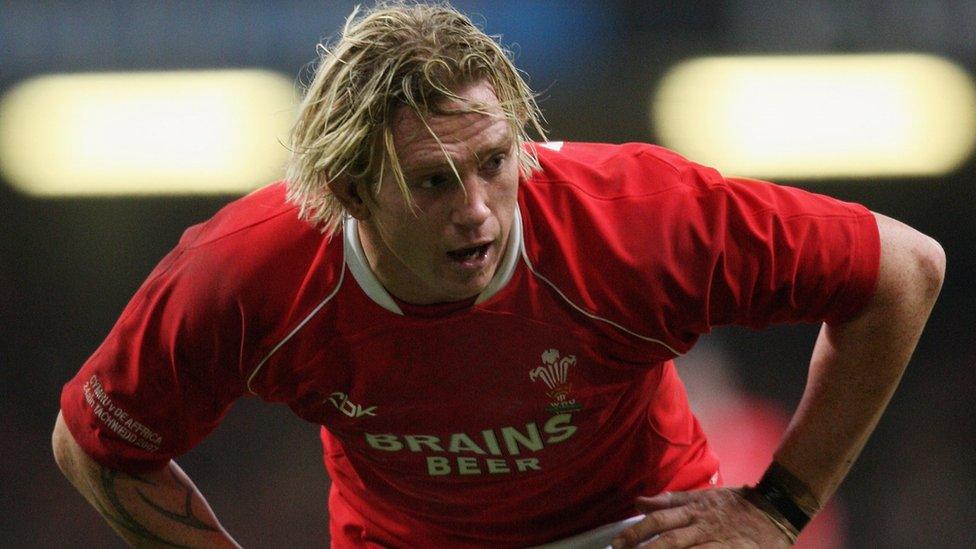Concussion: Research in women's game lacking - World Rugby
- Published
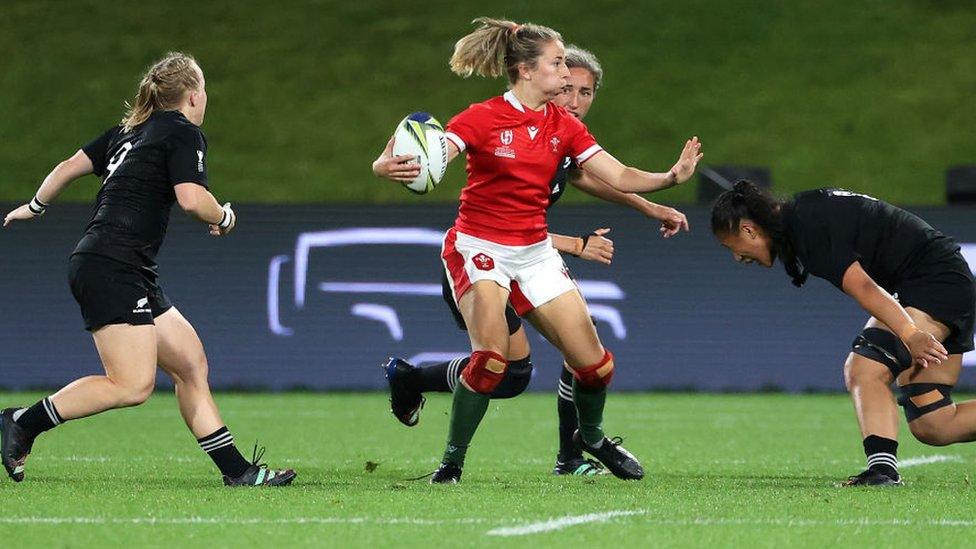
Elinor Snowsill played in four consecutive World Cups for Wales from 2010 to 2021
There has not been enough research in the women's game on issues such as concussion, rugby bosses have admitted.
Concerns are being raised by experts over head injuries in the sport and the gap in knowledge about how they are sustained, prevented and treated.
Ex-Wales centre Alecs Donovan said when she got concussed playing for Ospreys she was "not even sure we had a physio. There wasn't that medical support".
World Rugby said there was a "definite need" to close the gap in knowledge.
Women's rugby in Wales has hit new heights with a surge in popularity and professional contracts for the international team.
While the game is growing, fears over head injuries and concussion are building and looming legal action by players against the Welsh Rugby Union, Rugby Football Union and World Rugby includes women.
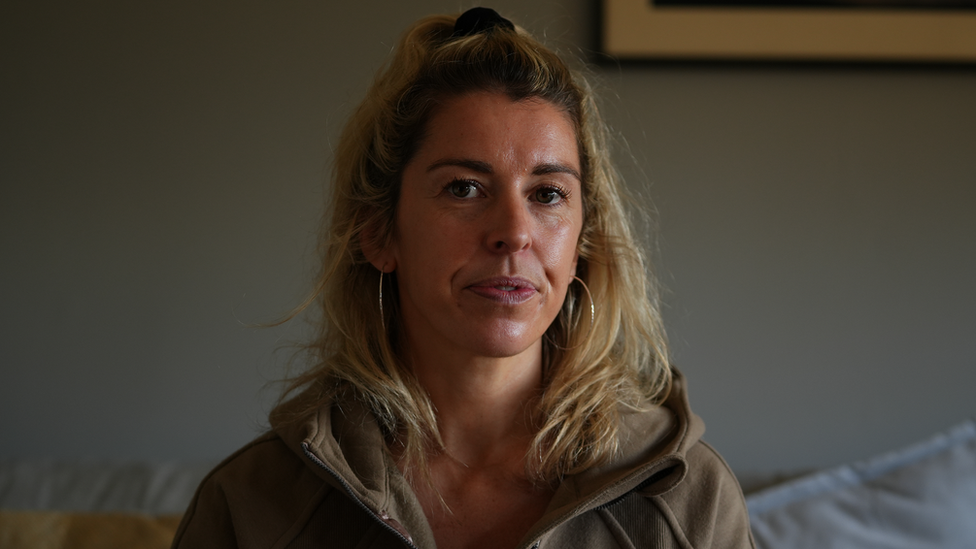
Alecs Donovan made her Wales debut against Italy at the Principality Stadium in 2018
World Rugby said it was working with other organisations on projects to gather data in the women's game, including the debut of smart mouthguards at the new WXV tournament.
Donovan, 32, and her ex-Wales teammate Elinor Snowsill were both affected by concussions during their careers.
Donovan, who played for Wales until 2021, said one time "I actually didn't know I was concussed" when she suffered a head injury while playing for her club side about seven years ago.
Ospreys declined to comment.
Fly-half Snowsill, who retired from international rugby in 2023, said there was still a reliance on male research for the women's game.
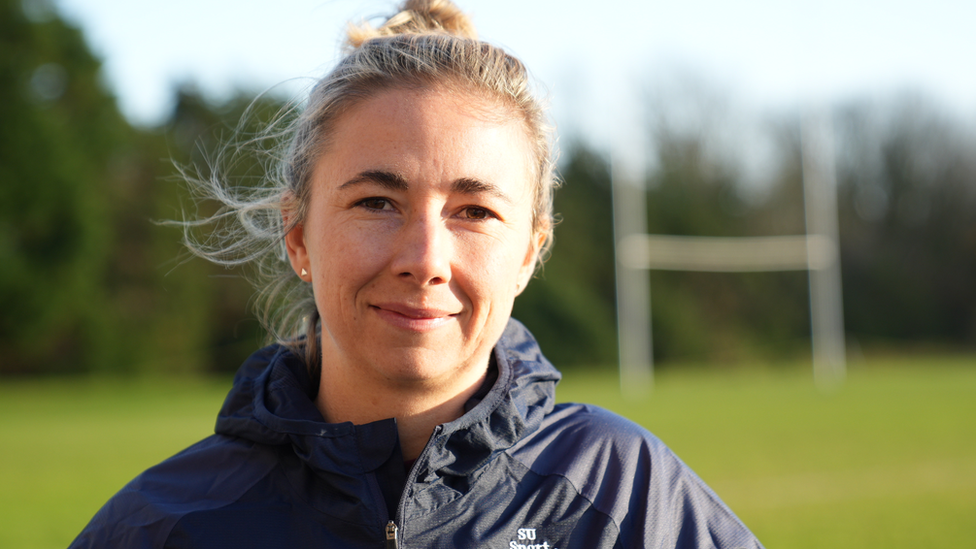
Elinor Snowsill - who earned 76 caps for Wales - said there had been big changes over the past decade when it came to awareness and treatment of concussion
She told Wales Live: "Most of the things we do currently - the way we eat, the way we train - a lot of it is driven from and based on research on male athletes.
"But, we have completely different bodies, we play differently and we train differently.
"I think it's really important in concussion and in other areas that we increase how much research there is out there, specifically on female athletes."
Researchers say much of the focus around head injuries has been on the men's game for many years.
Cardiff Metropolitan University lecturers Dr Izzy Moore and Dr Molly McCarthy are collaborating with higher education facilities around the UK to work on filling that gap in people's knowledge.
Dr Moore said the lack of female-specific data meant "we are missing a huge piece of the jigsaw puzzle in looking after our female players".
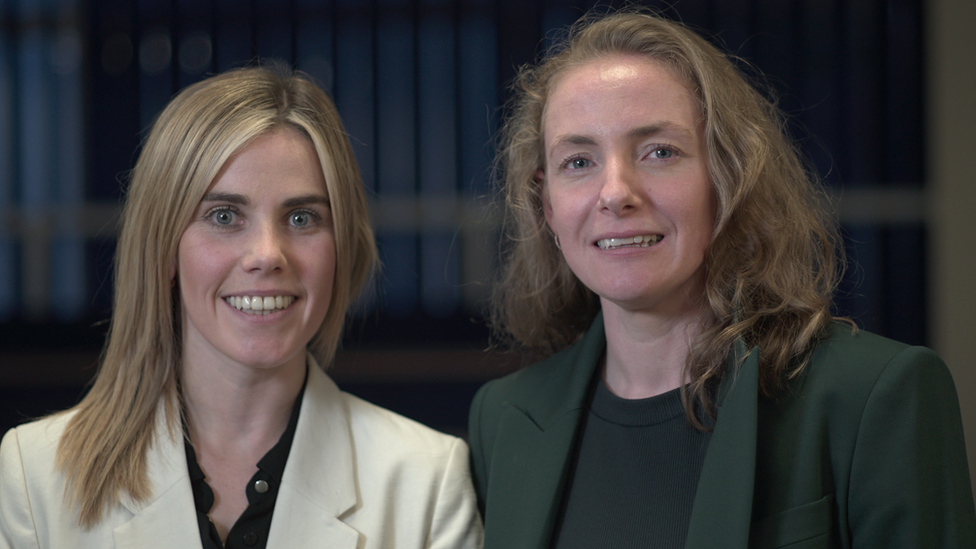
Dr Molly McCarthy and Dr Izzy Moore are among the researchers trying to improve the understanding of injuries in women's rugby
One of these projects - led by Swansea University - involves gathering and monitoring data by using mouthguards that measure the force of head impacts during play and analysing videos from training and matches.
Dr Moore said: "When we look at the videos in the women's game we see over 50% of head impacts are occurring as players fall to the ground.
"Whereas in the men's game they have the stronger necks and they sustain head impacts mainly through direct body contact in a tackle event."
World Rugby data suggests women sustain head injuries mostly through head-to-head contact, which is different to that of a number of academic institutions in Wales.
Dr Moore said the age both sexes start playing might affect how they play and suffer injuries, with women often playing for the first time at university.
This gives their male counterparts a 10-year head start, with the early years "really important for developing their skills and tackle proficiency".
She added: "We may have women players who are going out on to the pitch for the first match they play and are still learning how to tackle. That may increase their injury risk."
The Welsh Rugby Union - which works with Cardiff Metropolitan University on injury surveillance - said it "remains at the forefront of player welfare in the global women's game".
It said the implementation of instrumented mouth guards, which monitor head impacts, at the WXV international tournament in New Zealand had been "a positive and essential step, just as they will be in the men's game".
World Rugby's science and medical manager Dr Lindsay Starling said there was a lot of work going on to bridge the gap for women, with funding only going to research that is a 50/50 split for men and women or solely focused on women.
"You can really only help the players to the best of your level by knowing information on them specifically and, obviously, females are not just small men they are different people," she added.
"We function differently. So we do need to understand the female-specific context."
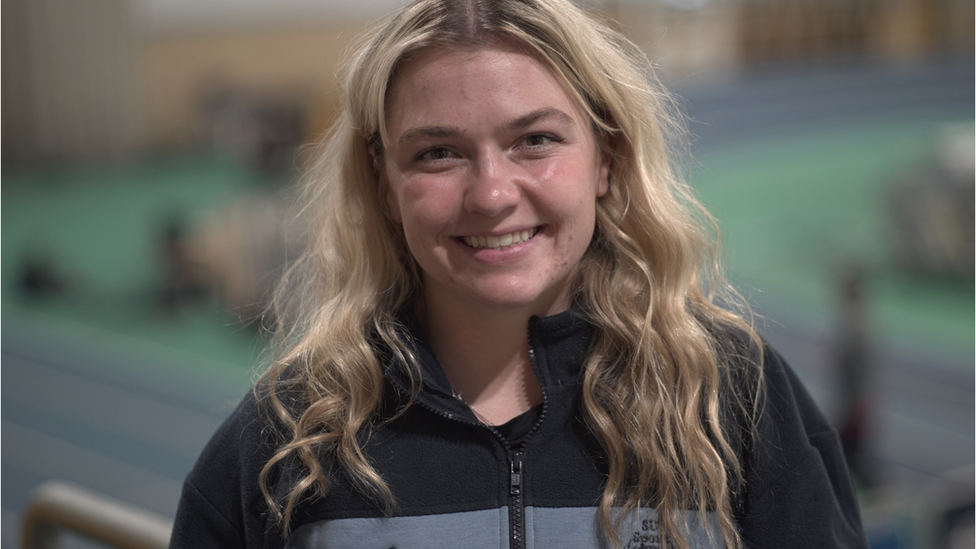
Emma Cantrell thinks she has suffered four concussions while playing rugby
Cardiff Metropolitan University women's rugby captain Emma Cantrell said concussions were seen as the worst injury and she would "take a bone break or fracture over concussion any day".
One concussion in the summer left her sidelined for two-and-a-half months.
She said while there was "always the fear of getting another one", they did not put her off the sport.
"Rugby gets a bad look, but there are safe ways to play it and the research is growing. I think every girl needs to try rugby."

KEEPING THE FAITH: Can Wales stay at the top of their game?
KIRI'S TV FLASHBACK: Kiri Pritchard-McLean dives into the TV archives

Related topics
- Published27 July 2023
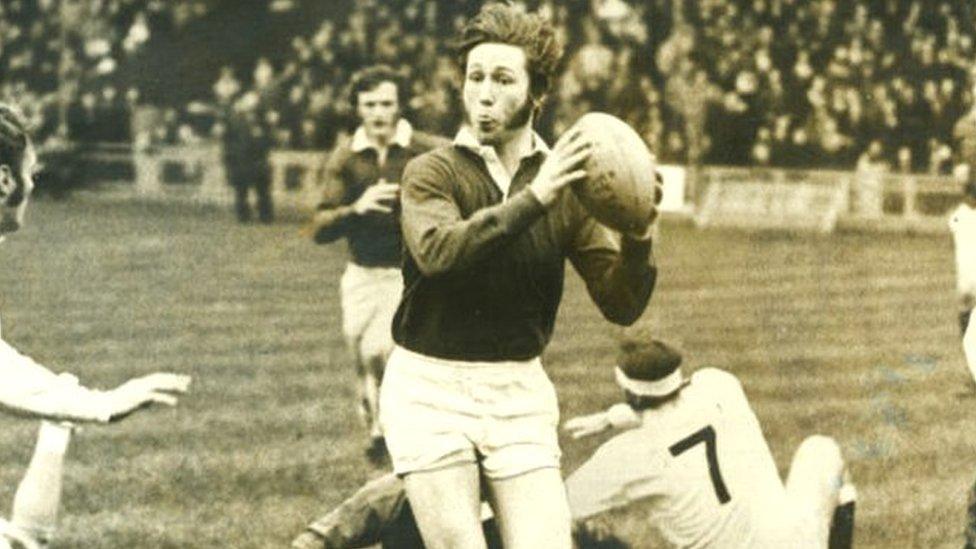
- Attribution
- Published27 July 2022

- Published17 May 2021
